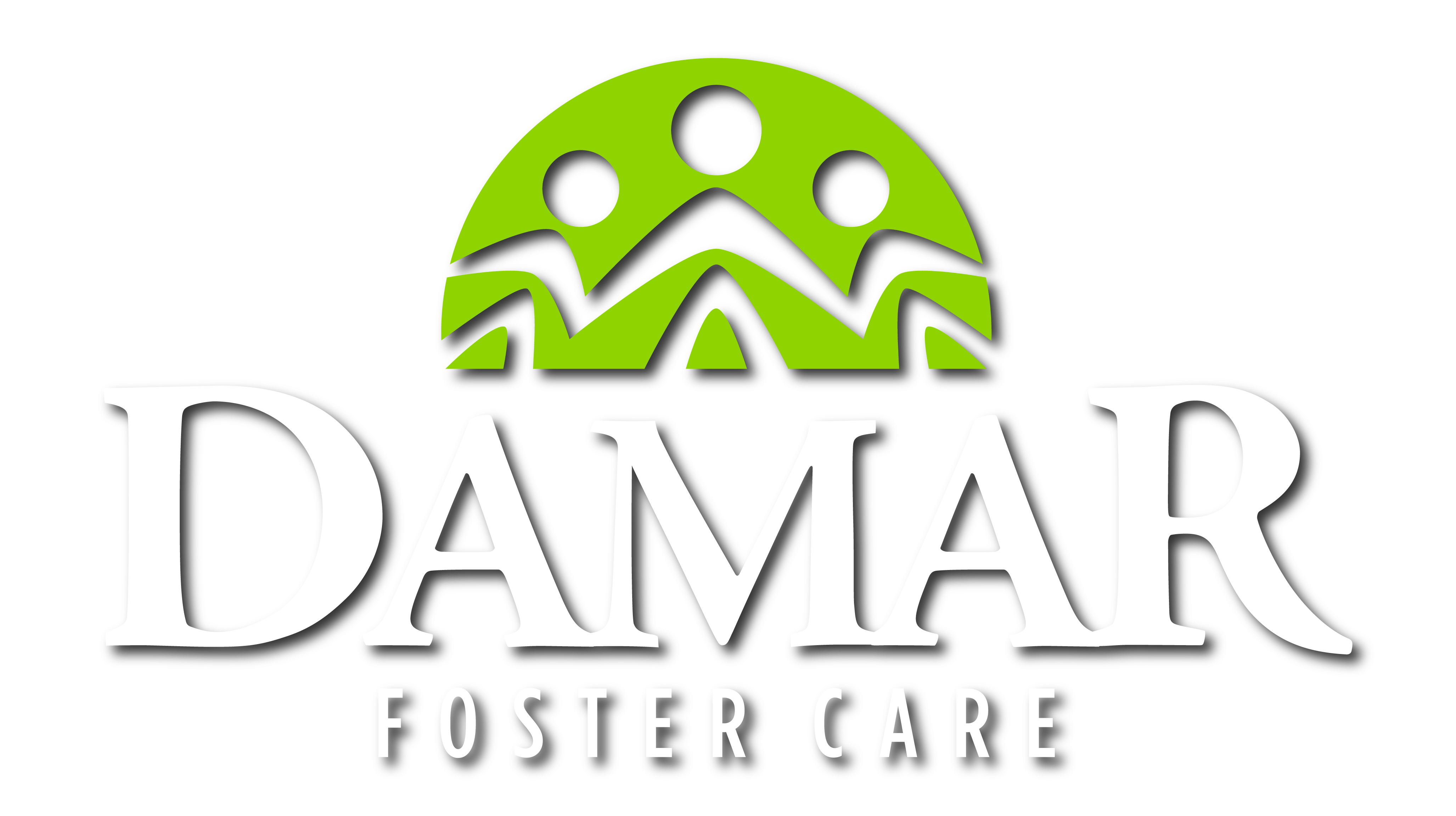
Foster Care
You can be a foster parent. Damar guides you through the process from beginning to end. Foster care creates brighter futures for children—and we can’t do it without your help. Becoming a foster parent generally takes from three months to a year, depending on the timing of background checks and home visits. In short, anyone over the age of 21 who cares deeply for children and is financially and emotionally stable is eligible. Fill out the form below if you are interested in becoming a
Foster Parent.
What is a Foster Care
Information Session?
Register for a Foster Care
Information Session Today
About Damar's Foster Care Program
Damar Foster Care Services is a fully licensed, not-for-profit child placement agency, working on behalf of children who are unable to live at home. We recruit, prepare, and support quality foster parents.

Who Can Become a Foster Parent?
Foster parents must be kind, patient, nurturing, and determined to make a positive difference in the lives of the children placed with them.
While the minimum age is 21, foster parents can be single, married, coupled, homeowners, renters, young, or simply young at heart. They come from diverse backgrounds and encompass all genders, religions, cultures, and ethnicities.
View Parent Guide

Responsibilities of Foster Parents
Foster parents are nurturers who are vital to the success of a child’s reunification with his or her birth family or other permanent placement.Their main goals are to provide skilled care, guidance and support to their foster child, but they also have important responsibilities to the placement agency, birth family, treatment team, and their own family. They serve a big and important role.
Learn More

Resources & Support for Foster Parents
Damar’s commitment to its foster parents is simple: We will be with you every step of the way. Our Damar Foster Care Services team provides you with resources, information, and encouragement while you decide whether foster parenting is your calling. As you complete the application process, we’ll be there to answer any questions. And, throughout the time a child is placed in your home, we are only a phone call away.
Learn More
Training & Licensing Foster Parents
Damar makes the process as easy as possible with expert, experienced guidance.
On the path to becoming licensed, you will receive about 20 hours of instruction. Beyond that, you’ll work through a seven-part process, including participating in background checks and a home study.
Learn More

Growing through the Experience of Fostering
James Capps has advice for people who wonder if they’re foster parent material: Dive in and find out. Not only will you likely realize that you are foster parent material, but you’ll also grow as a result of the discovery process...
Read MoreHow Indiana's Foster Care System Works
Foster care is a state-managed welfare system, providing out-of-home placement for children who have been removed from their original home due to neglect, abuse, delinquency, or abandonment.
How Foster Care Works
Foster Care Benefits and Discounts
- Free family memberships at the Children's Museum of Indianapolis
- Up to $150 of sports registration fees for foster youth can be covered by Dick's Sporting Goods
- Free tickets for foster youth at
Holiday World - Free passes to all Indiana State Parks for foster families and older
foster youth - Marengo Cave foster family program


Foster Care
You can be a foster parent. Damar guides you through the process from beginning to end. Foster care creates brighter futures for children—and we can’t do it without your help. Becoming a foster parent generally takes from three months to a year, depending on the timing of background checks and home visits. In short, anyone over the age of 21 who cares deeply for children and is financially and emotionally stable is eligible. Fill out the form below if you are interested in becoming a
Foster Parent.
What is a Foster Care Information Session?
Register for a Foster Care
Information Session Today
About Damar's Foster Care Program

Damar Foster Care Services is a fully licensed, not-for-profit child placement agency, working on behalf of children who are unable to live at home. We recruit, prepare, and support quality foster parents.
Who Can Become a Foster Parent?

Foster parents must be kind, patient, nurturing, and determined to make a positive difference in the lives of the children placed with them.While the minimum age is 21, foster parents can be single, married, coupled, homeowners, renters, young, or simply young at heart. They come from diverse backgrounds and encompass all genders, religions, cultures, and ethnicities.
View Parent GuideResponsibilities of Foster Parents

Foster parents are nurturers who are vital to the success of a child’s reunification with his or her birth family or other permanent placement.Their main goals are to provide skilled care, guidance and support to their foster child, but they also have important responsibilities to the placement agency, birth family, treatment team, and their own family. They serve a big and important role.
Learn MoreResources & Support for Foster Parents
Damar’s commitment to its foster parents is simple: We will be with you every step of the way. Our Damar Foster Care Services team provides you with resources, information, and encouragement while you decide whether foster parenting is your calling. As you complete the application process, we’ll be there to answer any questions. And, throughout the time a child is placed in your home, we are only a phone call away.
Learn MoreTraining & Licensing Foster Parents
Damar makes the process as easy as possible with expert, experienced guidance.
On the path to becoming licensed, you will receive about 20 hours of instruction. Beyond that, you’ll work through a seven-part process, including participating in background checks and a home study.
Learn More
Growing through the
Experience of Fostering
James Capps has advice for people who wonder if they’re foster parent material: Dive in and find out. Not only will you likely realize that you are foster parent material, but you’ll also grow as a result of the discovery process...
Read More
How Indiana's Foster Care System Works
Foster care is a state-managed welfare system, providing out-of-home placement for children who have been removed from their original home due to neglect, abuse, delinquency, or abandonment.
Becoming a foster parent generally takes from three months to a year, depending on the timing of background checks and home visits. In short, anyone over the age of 21 who cares deeply for children and is financially and emotionally stable is eligible.
How Foster Care Works
Foster Care
Benefits and Discounts
- Free family memberships at the Children's Museum of Indianapolis
- Up to $150 of sports registration fees for foster youth can be covered by Dick's Sporting Goods
- Free tickets for foster youth at Holiday World
- Free passes to all Indiana State Parks for foster families and older foster youth
- Marengo Cave foster family program